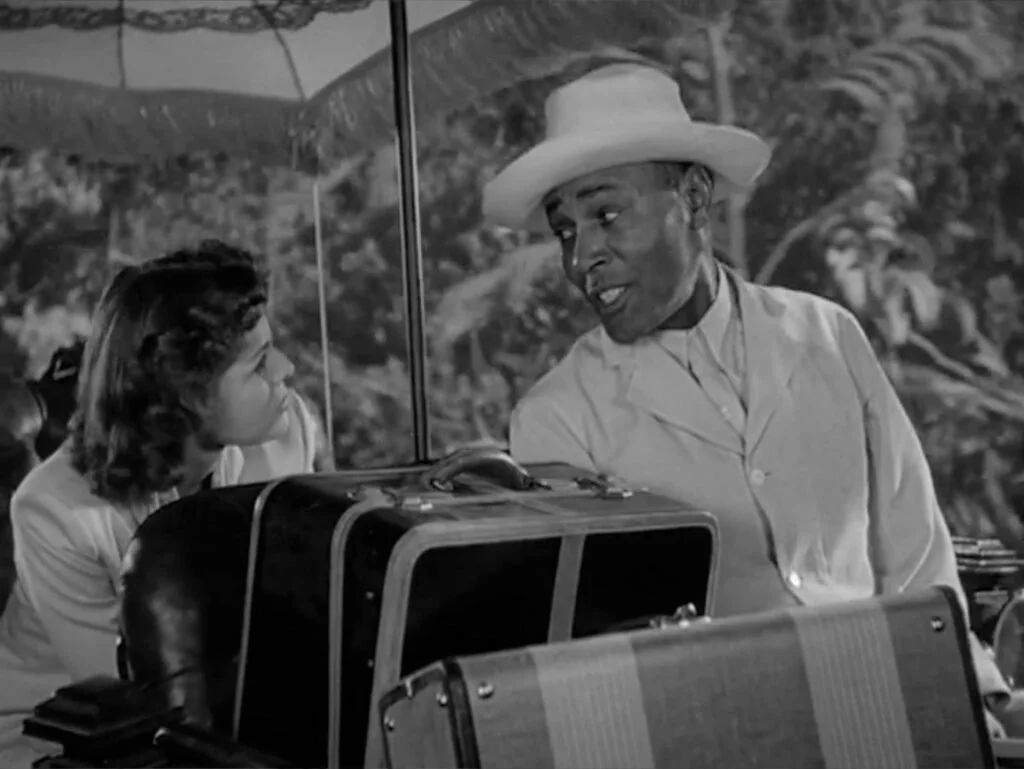#162: I Walked with a Zombie
Release Date: April 30th, 1943
Format: Theater (The Frida Cinema in Santa Ana, CA)
Written by: Curt Siodmak and Ardel Wray
Directed by: Jacques Tourneur
4 Stars
I wish there were more movies like this today.
Released in the spring of ‘43, I Walked with a Zombie is evocative, suggestive, and haunting. At a run time of just 69 minutes, its storytelling is pared down, yet there are elements that make you lean forward in your seat and question just what exactly is happening here.
The plot is simple enough: a nurse named Betsy is hired as a caretaker in the West Indies for the wealthy Holland family, whose ancestors settled the island and established its slave trade. We humorously learn this at the same time as Betsy, when she’s told the island’s history by a congenial black coachman transporting her to the family estate:
“The enormous boat brought the long-time ago fathers and the long-time ago mothers of us all, chained down to the deep-side floor.”
Her response?
“But they came to a beautiful place, didn’t they?”
“If you say miss, if you say.”
Betsy’s innocence and ignorance work well in guiding us through the heat and mystery of this story. The Holland patriarch, Paul, has a sick wife - seemingly a zombie - that Betsy must care for. What caused the wife’s condition? Was it a tropical fever that damaged her spine? Or does it have something to do with the beating drums heard outside of the Holland estate grounds, ominously, deep in the sugar cane fields.
The locals practice voodoo out there, if you believe in that sort of thing. Betsy might.
It’s a tremendous movie, directed by Jacques Tourneur and produced by Val Lewton. Shot in black and white, Tourneur seems to intentionally blur night and day. Any given scene might be at 3pm, or 3am, we’re not sure. We’re a bit lost, just like Betsy, in the hot and oppressive environment.
Oppression is the overarching theme of the film. The island and its inhabitants are bound together by its history of oppression, and I Walked with a Zombie darkly probes the effects. In the end, it turns out that the Hollands have been exploiting more than just slave’s labor, and the consequences of their petty agendas are severe.
I was impressed by the nuance and complex themes in such a short film from 1943. Producer Val Lewton was a Russian Jew and director Jacques Tourneur was a Frenchman, both immigrants from war torn nations. Collaborating together on this film during the height of Nazi Germany’s fascist empire on the other side of the Atlantic, I’d like to think that the two men attempted a degree of empathy and humanity in their portrayal of West Indies slaves and their beliefs.
Ultimately, it’s not the unrelenting sun or the beating drums that drive Betsy and the Holland family to madness. It’s oppression, of those they love as well as those they hate, that fates them to hell on earth.
